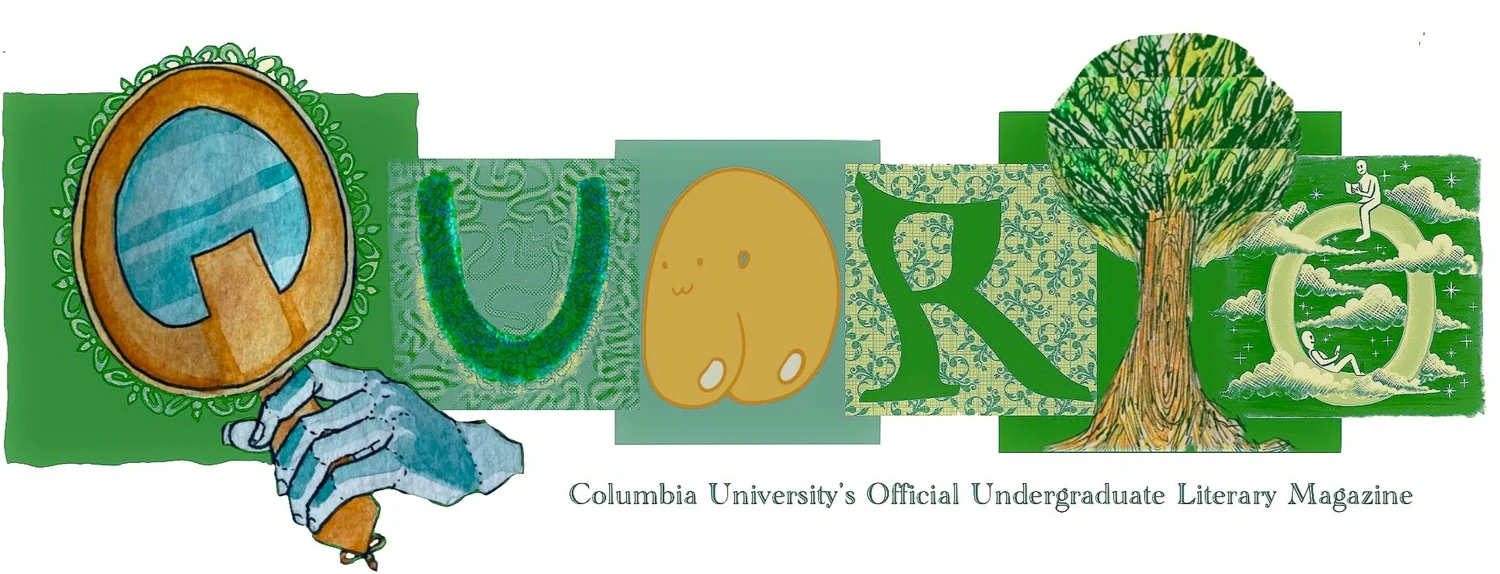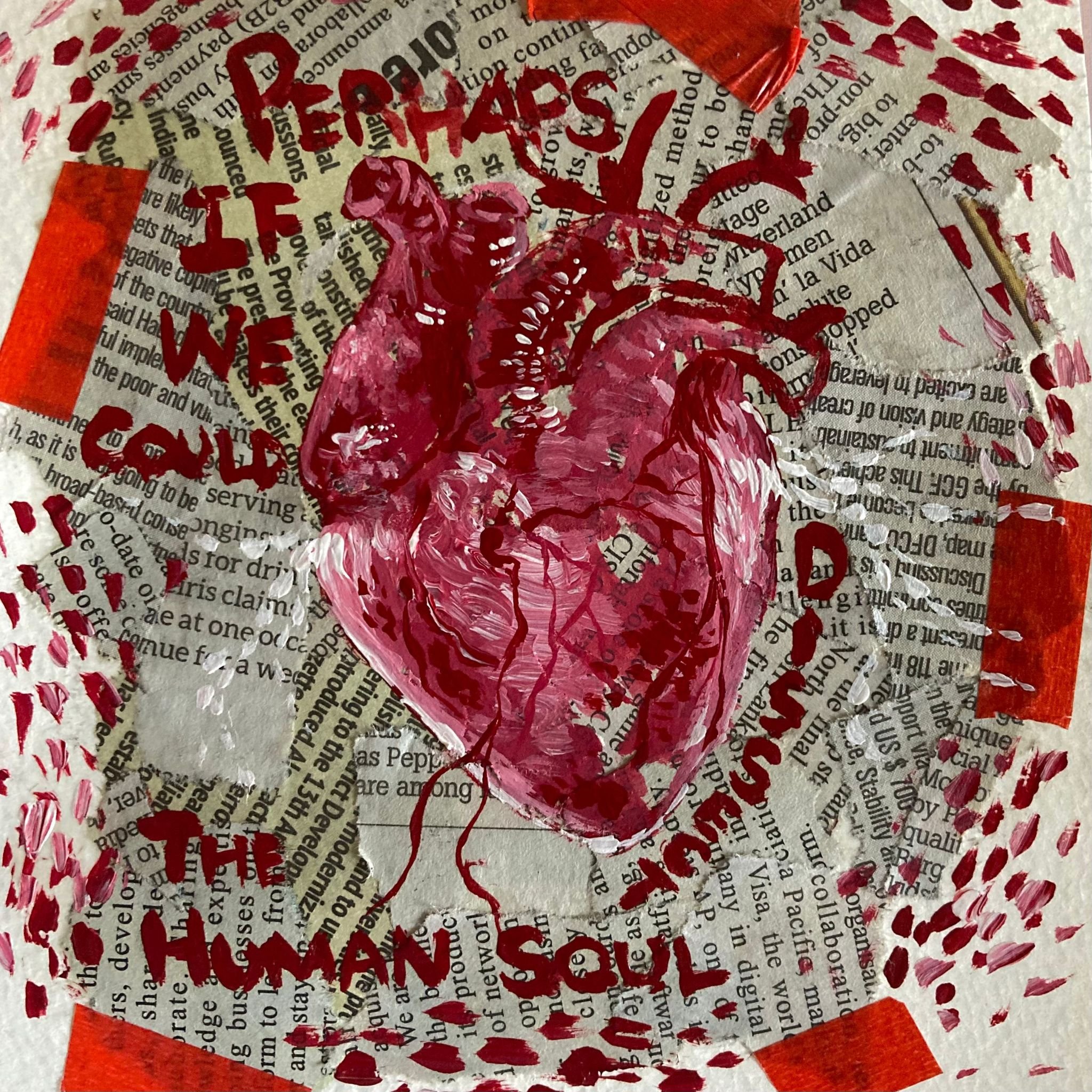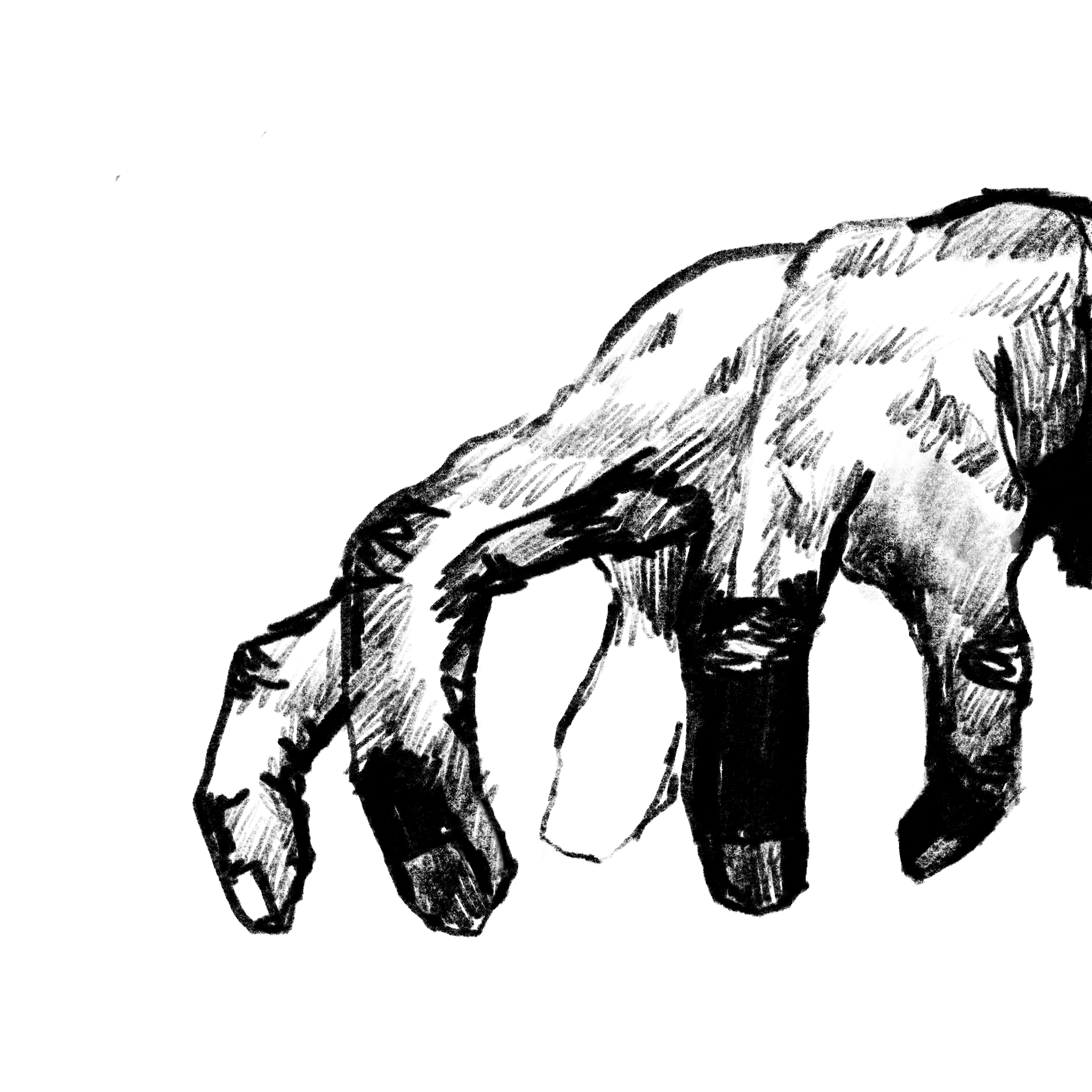This piece was first published in Quarto’s 2023 Spring Print Edition.
I.
How many days in a row have I eaten Reese’s Pieces for breakfast?
I can’t do my girlfriend instead of my homework because I got an A on one essay,
Good God. But there are lots of ways to bend the phrase
Taking care of yourself.
How often do people wait to kiss someone because they want
to be kissed first? I kiss in every order. So it would be
shameful to put that to waste despite that I still cry in my bed because everyone hates me
while they all stand silent at the door with more
chocolate. Under the bed I’m yanking dark caramel, who pulls burns melts but still forms again
again again to rot.
II.
How wild my best friend said my depression is cooler than hers because
I am still kind. Kind? I told her I thought she was kind. You are missing the point,
She replied. I am yet to be sure of The Point – In the hot sun I
take something for nerves then gap the holes in my day thus far once I’ve
fixed my mascara I will make sense of my life and
How come I am living it.
Picture this natural disaster of falling in love like a domino, gay this place
Would you rather debate dog show ethics or spend five minutes coaxing hot
syrup into the fat of an arm as to prevent hollowing out. My bearings never fucking
gather just free solo scary mountains who growl with their jaws ripped open, tongues wet with my
arrival.
III.
How am I already aging enough to notice that I have started to forget
What people have seen of my body? telling my sister in a Starbucks that when I overheat
I shutdown she just looks at me and says she has known me my whole life I feel ashamed
therefore I am leaving
The riches of abyss sweet recluse so that my father never has to drink alone again.
How do I stop writing a million lines about limbo? The rightness of lacquered lips and
the illness of inhabiting the world. Saltless peanut butter from the jar for supper, red
by the bottle so my head doesn’t fall of this reaching neck. Hours in a room whose
walls say what I cannot: Awake? Yes. Alive? Not particularly.
Haven Capone (she/they) is a junior at Barnard tentatively studying creative writing and Italian. She plays Mellophone in the campus ensemble Columbia Pops and loves bears. She could never pick a favorite genre to write, and will forever move between them.




















